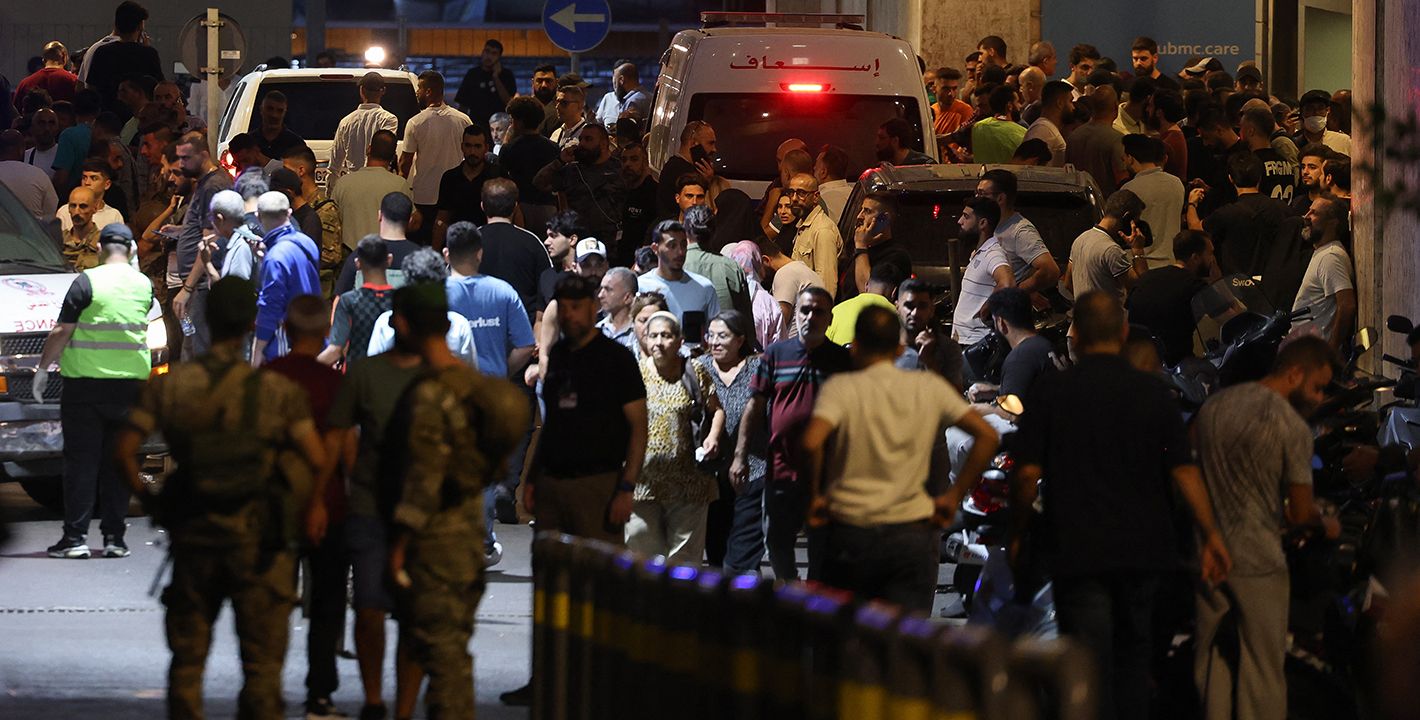What Happened?
Twelve people* were killed and nearly 3,000 injured as thousands of pagers exploded across Lebanon, overwhelming the country’s hospitals. Explosions also took place in Syria. Most of those targeted were Hezbollah members. While Israeli officials did not admit Israel’s responsibility for the operation, news outlets such as the New York Times and Reuters confirmed it had been behind the attacks. One source cited a U.S. official who claimed Israeli intelligence had hidden small amounts of explosives in each of the Taiwanese-made pagers. Ironically, Hezbollah had long emphasized the need to use less sophisticated communication devices to avoid Israeli surveillance. The attack was the bloodiest operation against Hezbollah since its inception in 1982, and represented a huge breach of the party’s security protocols.
Why Is It Important?
The attack is significant for two main reasons. The first is related to the possibility that it might provoke a wider war between Hezbollah and Israel. Iran and Hezbollah have been trying to avoid such a conflict at all costs in the past eleven months, partly due to U.S. threats of involvement in the event of a wider regional conflagration, but also because Israeli Prime Minister Benjamin Netanyahu seems to be wagering on the Republican candidate for the U.S. presidency, Donald Trump. Iran, in contrast, does not want another Trump presidency, given Trump’s expected focus on fighting Tehran’s regional influence and his unconditional support for Netanyahu’s policies. The attack increases the pressure on Hezbollah to respond, given its impact on the party’s morale, as well as the fact that there were casualties among family members of the party’s leadership. For example, the son of Hezbollah’s longtime parliamentarian Ali Ammar was one of those killed.
A second reason is that the massive number of casualties comes on top of the hundreds of dead and injured that Hezbollah has incurred during the conflict with Israel. This raises questions about the party’s operational capabilities in the next phase. While Hezbollah has boasted of new capabilities which, it claims, could shift the balance of power and exact a heavy price from Israel in the event of a military escalation in the south, the attack and the many assassinations that preceded it have demonstrated Israel’s superiority in terms of its technological and intelligence capabilities.
It is possible that Israel received help from Western allies, given the scale of the operation, and there are examples of such support in previous attacks against Hezbollah. Among them are the Central Intelligence Agency’s actions against Hezbollah in the past two decades, including the assassination (in collaboration with Israel) of the party’s security chief Imad Mughniyeh in Damascus in February 2008. That said, a State Department spokesman declared Israel had not informed the United States of the latest operation.
What Are the Implications for the Future?
The most pertinent question after the attack is whether a wider conflict between Hezbollah and Israel is imminent. Yet this did not happen even after Israel assassinated one of Hezbollah’s most senior military commanders, Fouad Shukr, last July. Israel continues to raise the ante on Hezbollah, which is constrained by its desire to avert a major blow-up. For the party, an all-out war may not only facilitate the arrival of Donald Trump (since the Democrats would be blamed by many voters for having allowed the war in the Middle East to spread), but more significantly, it would lead to Lebanon’s devastation at a time when the country is already being battered economically, which may be followed by a long-term Israeli occupation of the south.
Another question for Hezbollah, as it weighs its options, relates to its operational capabilities. Can the organization engage in an all-out conflict with Israel when thousands of its members have been injured, and given the high death toll in its leadership ranks? The most logical answer is that the party will continue to seek to avoid such a conflict, given its diminished capacities. But the impact on party morale and the high cost of maintaining a policy of averting war will remain highly significant challenges for Hezbollah as it pursues its confrontation with Israel.
On the Israeli side, the attack presents an opportunity, given the elevated injury toll among Hezbollah members. Might a wider military escalation follow? The situation today may present an opening for Israel to deal Hezbollah a harsh blow, and perhaps implement what it has been threatening to do for some time, namely initiate a large ground operation to establish a buffer zone in southern Lebanon in order to protect Israel’s north. Yet the alibi for such an operation seems just as important. Israel, through its attacks, is waiting for a violent response that would justify starting a wider conflict. Until now, however, Hezbollah continues to act as a punching bag that refuses to punch back beyond a certain limit.
*The casualty toll has been updated.






